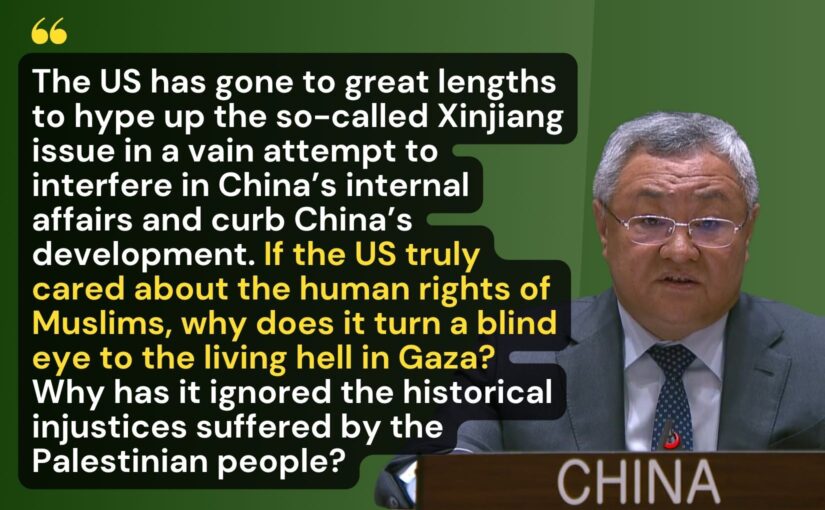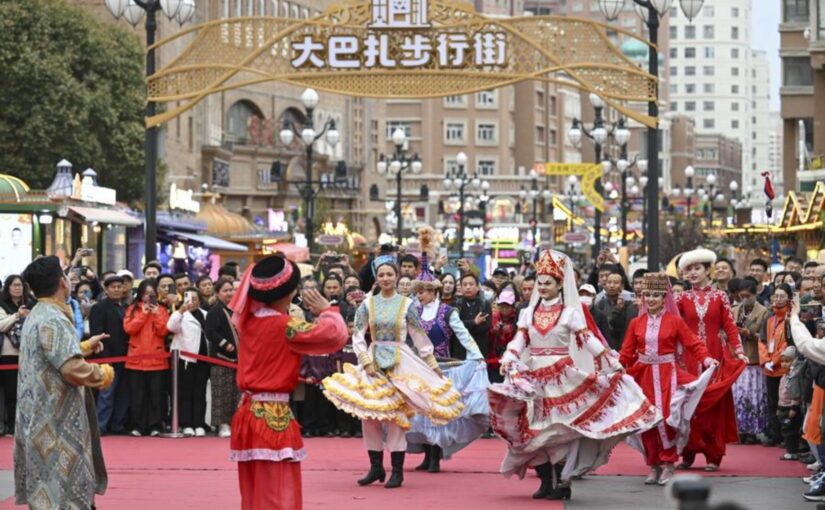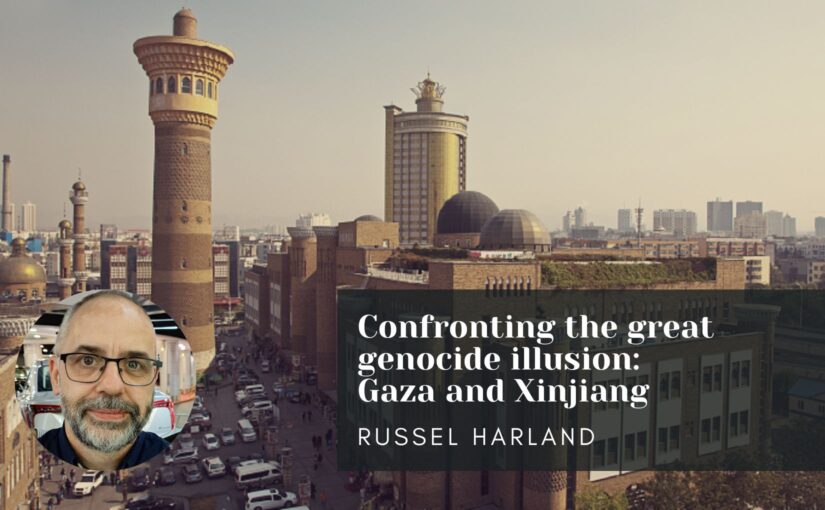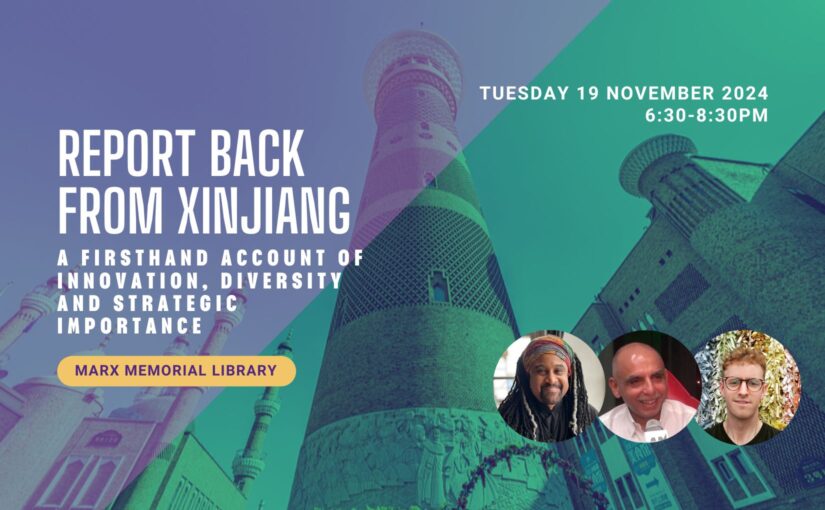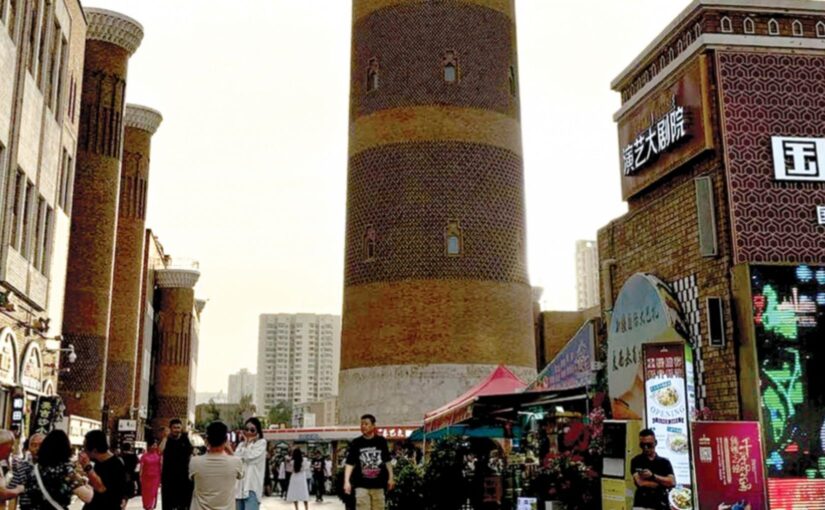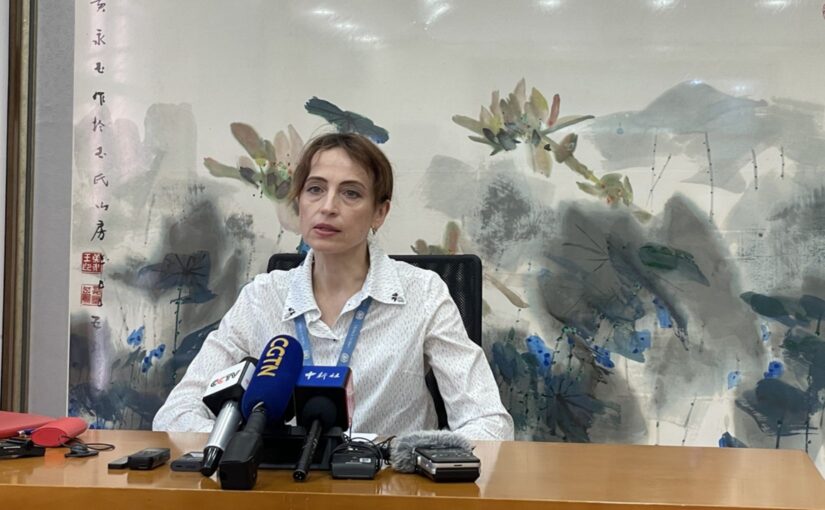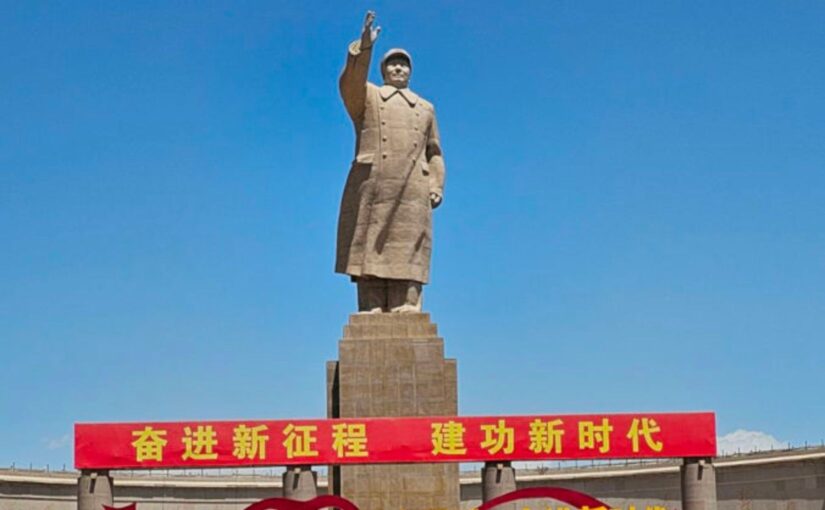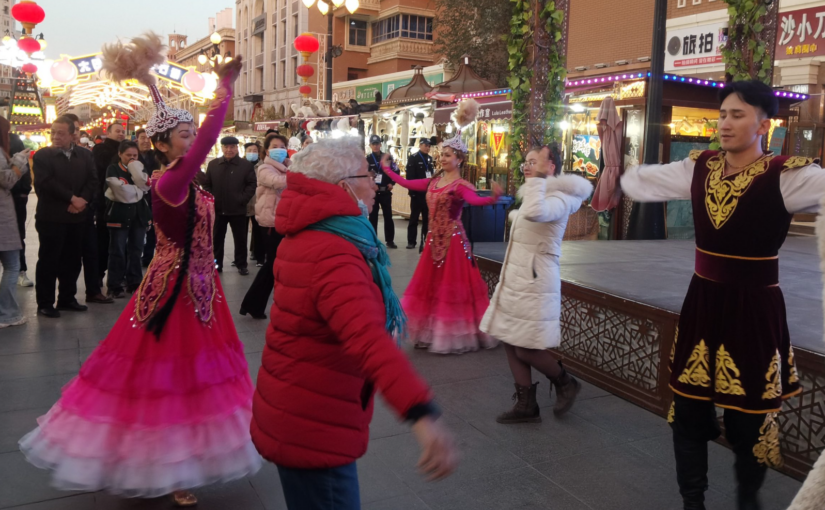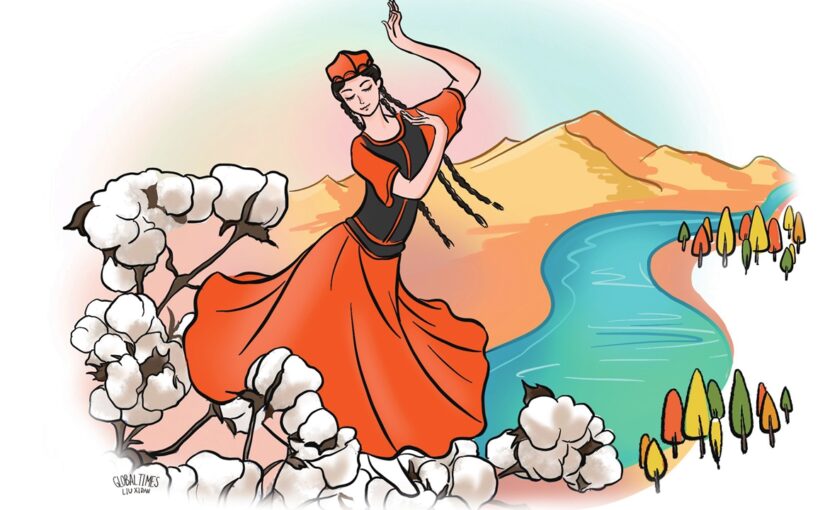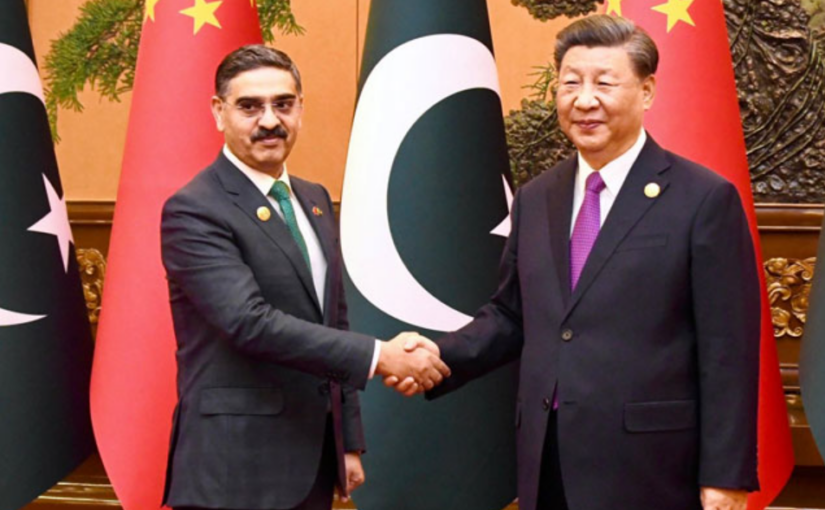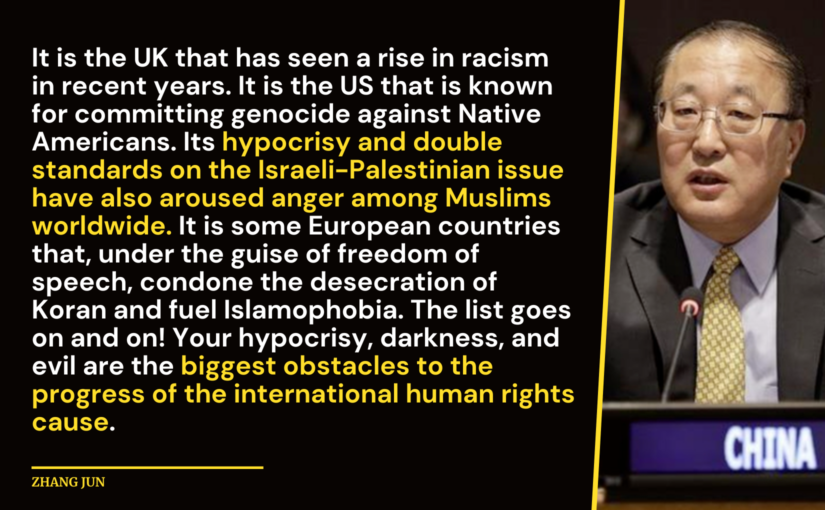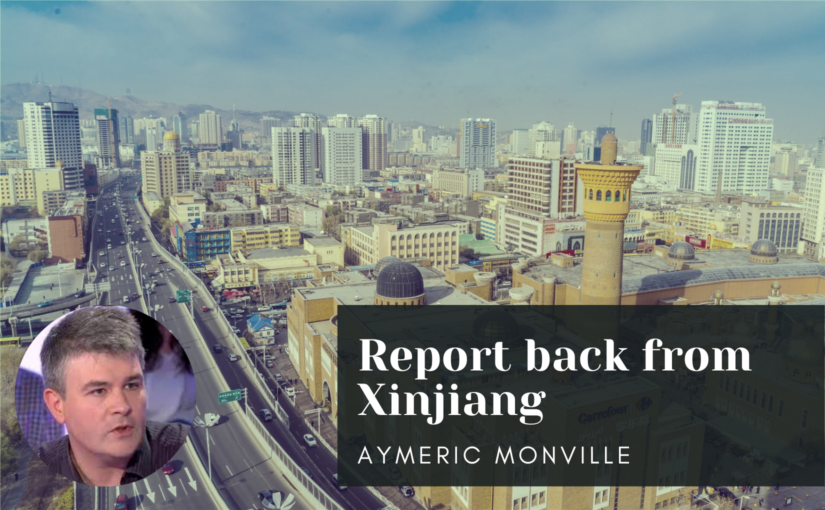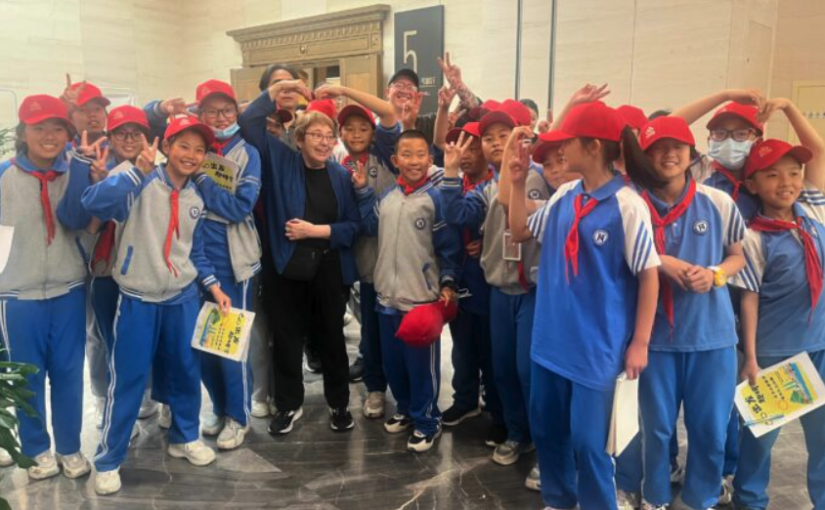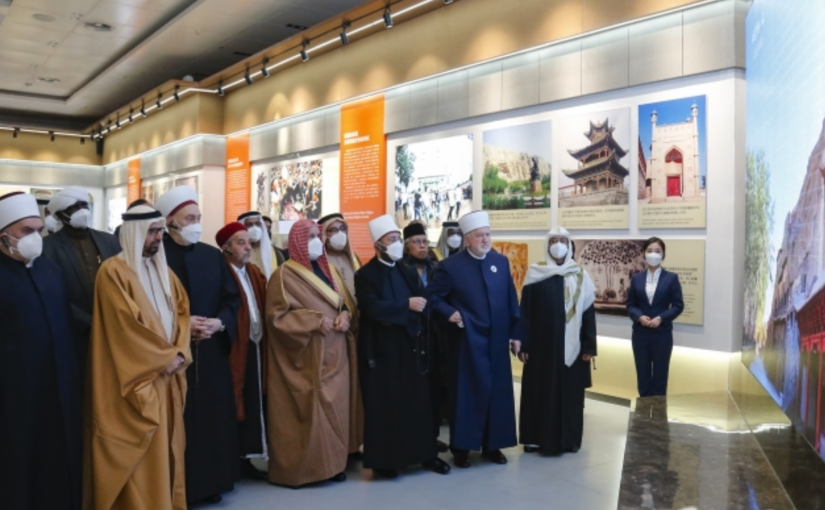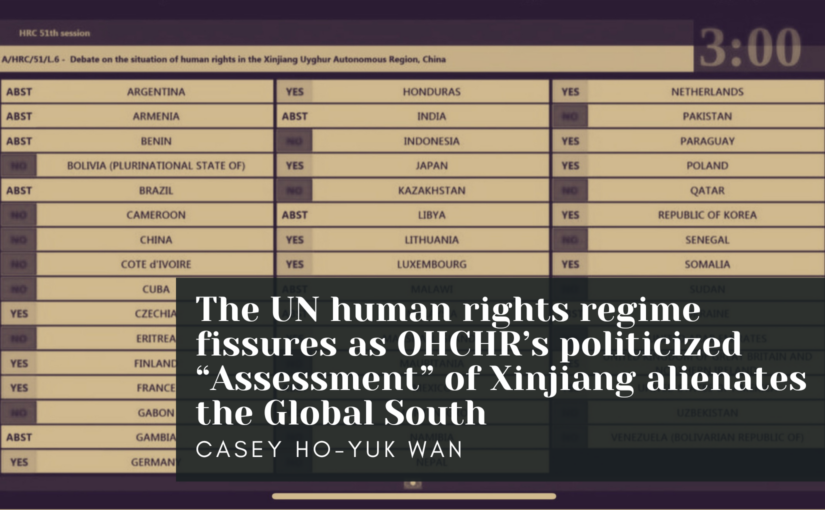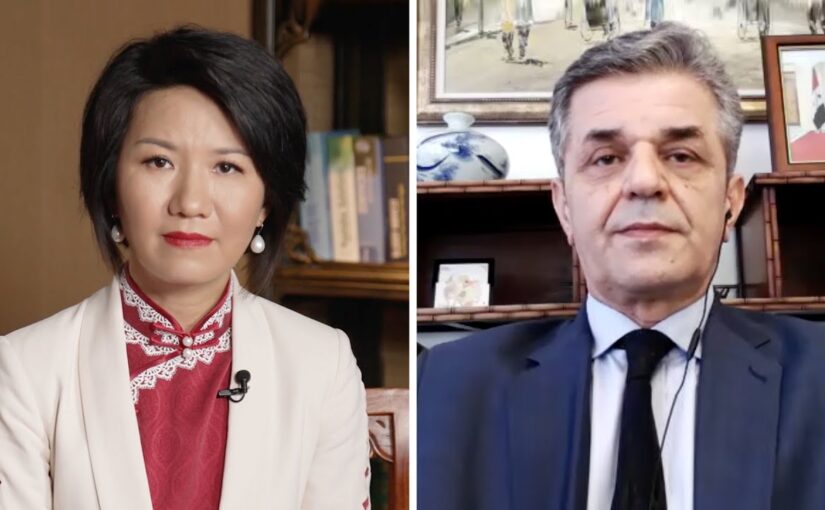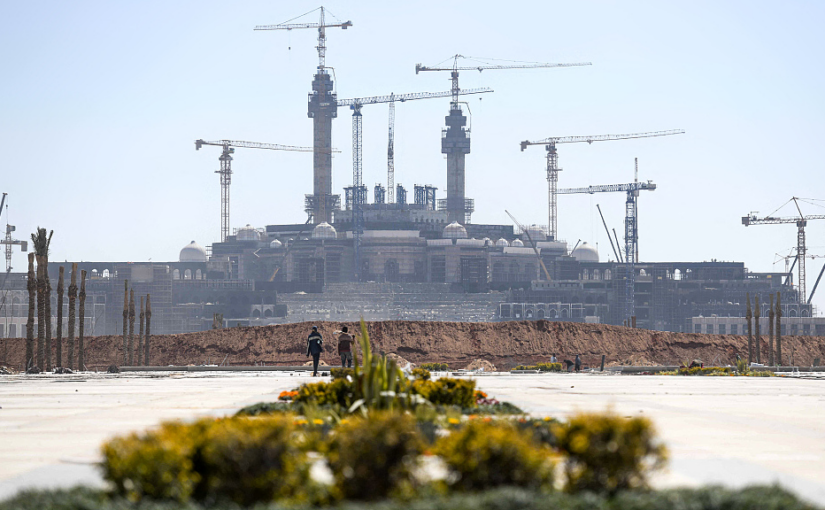We are pleased to republish below a valuable article by Arjae Red, a union activist and Workers World Party leader, on the attempts by the imperialist media to misdirect pro-Palestinian sentiments on the left towards an anti-China narrative based on slanders about the treatment of Uyghurs in Xinjiang.
Arjae observes that Western propagandists are “making bogus comparisons between the Israeli settler regime’s treatment of Palestinians and the treatment of Uyghur people by the Chinese government and Communist Party.” He points out that, however, not a single government in a majority-Muslim country has backed these slanders against China, whereas they do unequivocally condemn Israel’s genocidal acts.
The article explores the national question as it relates to both situations. The US views Palestine as a “strategic staging ground for US military and economic domination of West Asia”, and the Palestinian people as “an obstacle in the way of the accumulation of superprofits”. This provides the clear context for the sustained national oppression of the Palestinians. The People’s Republic of China, on the other hand, was founded “as a multinational workers’ state, forged through the overthrow of feudal and capitalist ruling classes and by ousting parasitic forces, such as Japanese and British imperialism.” From the beginning, the PRC has promoted the rights and cultures of minority nationalities. Indeed, “the Chinese People’s Republic inscribed into its political framework regional autonomy for formerly oppressed nationalities, like the Uyghurs in Xinjiang.”
Comparing the Israeli state’s treatment of Palestinians with the Chinese state’s treatment of Uyghurs, the difference could hardly be starker. While Palestinians experience blockade, occupation, siege, apartheid, ethnic cleansing and bombardment, “Uyghur and other ethnic minorities enjoy government grants and other affirmative action programs in education and job opportunities… Rather than destruction and extraction in Xinjiang, Beijing’s policies promote development. Major infrastructure projects have built housing, schools, hospitals and high-speed public transport.”
Arjae further notes that the US-led sanctions over Xinjiang have a dual purpose: to disrupt Xinjiang’s integration into the Belt and Road Initiative; and to cause economic hardship and discontent among the local population.
The author concludes with two key slogans of our time: “Free Palestine from the river to the sea! US hands off China!”
This article was originally published in Workers World on 16 January 2024.
The movement in the U.S. supporting Palestinian national liberation has drawn truly massive numbers of people in action. On Jan. 13, for example, a reported 400,000 people marched on the White House, marking the largest pro-Palestine demonstration in U.S. history.
To counter this growing outpouring of support for Palestine in the center of world imperialism, Western propagandists are trying to misdirect the popular outrage towards People’s China. They are trying to revive the discredited “Uyghur genocide” narrative, making bogus comparisons between the Israeli settler regime’s treatment of Palestinians and the treatment of Uyghur people by the Chinese government and Communist Party. A closer look at each situation reveals enormous differences.
Who do we believe?
The intense propaganda charging “Uyghur genocide,” starting in 2016, saturated the U.S. corporate media, quoting statements by U.S.-funded NGOs and U.S. politicians. The statements aimed to slam through heavy sanctions against China.
Following a fact-finding trip to the region, however, a 2019 delegation from the Council of Foreign Ministers — a key decision-making body of the Organization of Islamic Cooperation (OIC) — endorsed and commended China’s treatment of its Muslim citizens (hongkongfp.com, March 3, 2019). With 57 member states, the OIC is one of the largest intergovernmental bodies in the world.
A week after our trip to Xinjiang last year, a large delegation from the League of Arab States, including top official representatives from more than 16 Arab/Muslim countries, visited Xinjiang. In a June 2023 press statement, the delegation praised “the social harmony, economic development, people of all ethnic groups living in harmony in Xinjiang and accelerated progress.” They urged caution toward “international forces who smear and even demonize Xinjiang.”
No governments in majority-Muslim countries support the U.S. charge of “genocide” of a Muslim minority population in Xinjiang. Meanwhile, these governments publicly criticize U.S.-supported Israeli genocide in Gaza.
Multinational workers’ state vs. Zionist settler colony
Central to the comparison is a class analysis of the social foundation of the states of Israel and the People’s Republic of China. Like the United States, Israel was founded as a settler colony, built upon the slaughter and forced removal of Indigenous peoples, theft of their lands and the settlement of a majority European population.
U.S. strategists viewed the Israeli state on Palestine’s land mainly as a strategic staging ground for U.S. military and economic domination of West Asia, and thus as a major contributor to the profits of the world imperialist ruling class. They saw Palestinians as an obstacle in the way of their accumulation of these superprofits. To accomplish this conquest, the Israeli state has threatened to appropriate or erase every vestige of Palestinian culture, including Palestine’s history and food.
Israel as a state is thoroughly exploitative, extractive, and oppressive to the core. The state and the settler population, if it subscribes to Zionist ideology, serve the ends of the global imperialist ruling class.
The People’s Republic of China, on the other hand, was founded as a multinational workers’ state, forged through the overthrow of feudal and capitalist ruling classes and by ousting parasitic forces, such as Japanese and British imperialism. The Chinese Revolution established a state based on the political rule of an alliance between the workers, peasants and other progressive classes, led by the Communist Party.
The Chinese People’s Republic inscribed into its political framework regional autonomy for formerly oppressed nationalities, like the Uyghurs in Xinjiang. Historic Uyghur cities, such as Ürümqi, which had been renamed “Dihua” (meaning “to civilize”) following a 1755 Qing Dynasty invasion, regained their original Uyghur names.
Uyghur culture is widespread and celebrated in today’s China, which includes teaching the Uyghur language, as well as the languages of other ethnic populations in the region, in public schools. Before the Chinese Revolution, these languages were suppressed.
The People’s Republic is thoroughly multinational, based on the political rule of the working class and guided by the Communist Party. Its public goals involve developing a socialist economy and maintaining social harmony between ethnicities.
Israel destroys, China builds
Videos abound of the unmitigated destruction of Gaza by Israeli Occupation Forces. The IOF have bombed and bulldozed entire city blocks to dirt and rubble, razing homes, hospitals and schools.
Over decades, Israel has kept Gaza under a brutal blockade and crushed Palestinian businesses. Now the attacks have left the population without food, water, medicine and electricity.
Rather than destruction and extraction in Xinjiang, Beijing’s policies promote development. Major infrastructure projects have built housing, schools, hospitals and high-speed public transport. These projects outdo anything U.S. business or government projects have done on U.S. territory.
Uyghur and other ethnic minorities enjoy government grants and other affirmative action programs in education and job opportunities, which enable them to establish their own thriving businesses and fully participate in the vibrant Chinese economy. All of this has gradually reduced the wealth and development gap between the western Xinjiang region and the eastern coastal region of China, where, historically, all of the heavy industry was concentrated.
Xinjiang experiences no economic blockade except what U.S. policies impose. The Chinese government ensures that the basic needs of the people are met. During the COVID-19 outbreak, for example, Communist Party organizations delivered food and other supplies to Uyghur communities.
Continue reading Dismantling Western hypocrisy on Xinjiang and Gaza
